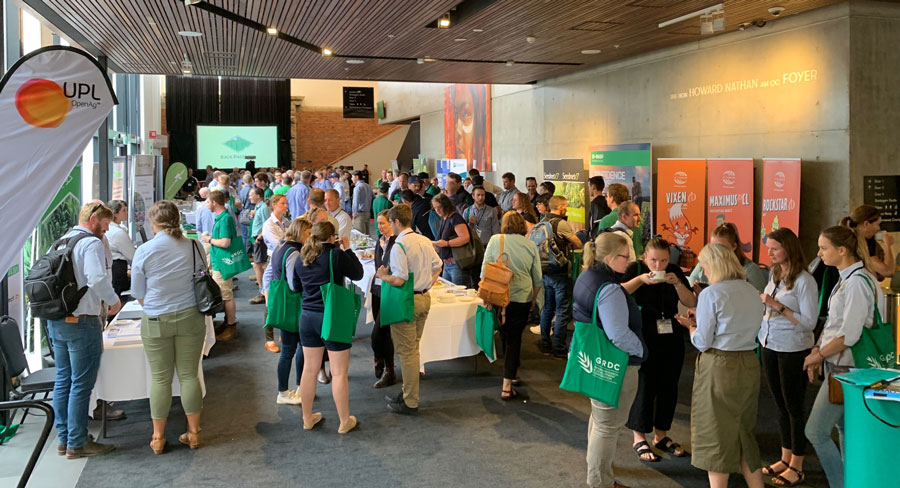South Australian grain growers and agronomists are set to gain advance access to the latest research findings, meet experts and network at SA's premier grains research forum next month.
The 2023 GRDC Grains Research Update – Adelaide will be held on February 7 and 8, with more than 400 people expected to attend. Keynote presentations will also be livestreamed.
The event aims to ensure growers, whose levies support Grains Research and Development Corporation (GRDC) investments, can benefit from the emerging technologies, innovations in best practice and new knowledge that those investments generate.
South Australian grain grower and GRDC Southern Panel member Lou Flohr said GRDC Grains Research Updates were "must-attend" events for every farmer and agronomist.
"They are an opportunity to learn the most recent research and network across businesses and peer groups," said Ms Flohr.
"I enjoy hearing a presentation from a researcher and then cross checking what I heard with other consultants and growers.
"A diverse audience means we all hear things differently, and so much can be gained from this interaction.
"Having the discussion with others allows me to embed the knowledge better, allowing me to apply it more thoroughly in my business."
Around 30 speakers will cover a range of other topics at the Adelaide event including the latest practical insights into weed and disease management, soil nutrition and soil amelioration.
Big topic issues will explore the future of wheat yield, and whether our farming systems can meet the global challenges of climate change, food security and sustainability.
Keynote speaker at the GRDC Grains Research Update – Adelaide, Harm van Rees, agronomy consultant and director of CropFacts, will explore the topical question: 'Can we maintain and increase productivity without glyphosate?'.
Glyphosate is used by growers practising minimum and no-till farming, which supports healthy soils and carbon retention.

GRDC Grains Research Updates bring together experts in grain production and science to support industry development through information sharing and networking. Photo: GRDC
"We need to better understand the glyphosate and other agrichemical residue status of soil and its impact on the environment and human health," said Mr van Rees.
"We may not have to change anything, but we need to know where we stand."
During his presentation, Mr van Rees will share what action Europe, Canada and Argentina are taking on glyphosate use, and what it might mean for Australian growers and how the industry can best prepare.
"We haven't talked enough about agrichemicals, but the discussion has to take place if we – the Australian grains industry – want to uphold our reputation as 'clean and green' food producers," he said.
Also helping to set up the industry for the future is Grains Australia.
At the Update, Grains Australia General Manager Classification Dr Megan Sheehy will share the work that is establishing and maintaining grains variety classification systems.
Classification systems aim to sort grain varieties by an agreed set of qualities and characteristics that the market wants.
"Having a classification framework that is market-driven provides whole-of-supply chain benefits," Dr Sheehy said.
"Breeders can develop varieties with those traits, growers can grow the grain for which there is a market, processors have the right quality grain for its intended purpose, and consumers get the product they want."
Dr Sheehy will report on work underway to develop oat and pulse classification systems and progress on the malting barley and wheat classification systems.
Every year GRDC hosts Grains Research Updates across the country to share the results of the research in which it invests.
Following the Adelaide event, the Grains Research Update – Bute, SA, will take place on February 9.
GRDC Grains Research Updates in South Australia are organised by ORM with the support and involvement of many research and industry organisations and individuals.
Registration and information:
- Grains Research Update – Adelaide (Feb 7-8)
- Grains Research Update – Bute (Feb 9)






